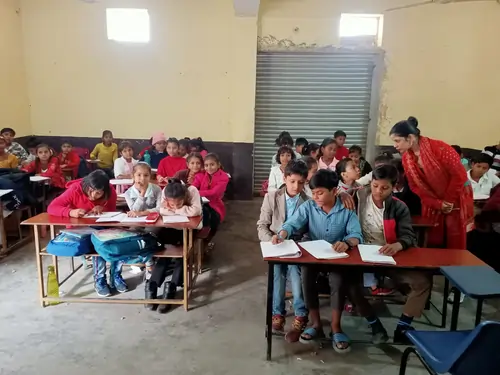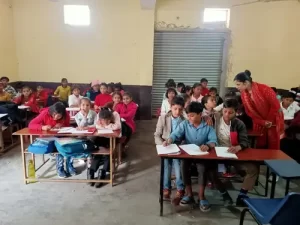Women Getting Empowered to Make Financial Decisions

Women Getting Empowered to Make Financial Decisions

In the lively heart of India, where the colorful threads of history weave together with the bustling rhythm of modern life, lies the vibrant city of Delhi. Amidst its chaotic streets and towering monuments, a silent revolution is quietly unfolding—one that champions the empowerment of women in taking charge of their financial futures. At the core of this transformation are the Non-Governmental Organizations (NGOs) of Delhi, whose tireless efforts are reshaping the financial landscape for women across the city.
The Significance of Financial Literacy
Before we dive into the inspiring work of these NGOs, let’s shine a light on a vital aspect: financial literacy. For many women, navigating the complexities of finance can feel daunting. Terms like “investment,” “savings,” and “credit score” might seem like a foreign language. But understanding these concepts is crucial, and Delhi’s NGOs understand this well. They organize workshops, seminars, and awareness campaigns to bridge this knowledge gap. Here’s why it matters:
Breaking Stereotypes: Traditionally, women have been confined to domestic roles, leaving financial matters to men. NGOs challenge these stereotypes by arming women with financial knowledge. When a woman understands her financial rights and options, she becomes an active participant in making economic decisions.
Boosting Confidence: Imagine a woman who once felt intimidated by the idea of visiting a bank now confidently discussing investment opportunities. This transformation is real, and it happens when NGOs provide women empowered with the tools and knowledge they need. Financial literacy boosts confidence and dispels fear.
Navigating Life’s Transitions: Life is full of transitions, from marriage to widowhood, each with its unique challenges. NGOs prepare women for these changes by teaching essential skills such as budgeting for weddings, planning for childbirth expenses, and achieving financial independence after divorce. These skills are invaluable in navigating life’s twists and turns.
The Role of Delhi’s NGOs

Among the transformative NGOs in Delhi is “My Abhinandan,” a relatively new player making waves in the NGO landscape. Despite their newcomer status, their impact is already noteworthy. My Abhinandan specializes in providing girl child education and financial literacy resources tailored to women empowered from diverse backgrounds. Through interactive webinars and personalized financial coaching, My Abhinandan aims to reach women in the digital sphere, ensuring accessibility and inclusivity in financial education efforts.
Delhi’s NGOs go beyond being mere organizations; they are agents of change. As women gain financial independence, they break free from societal constraints, emerging as decision-makers, breadwinners, and role models. So, the next time you hear “NGOs in Delhi for women,” remember that it’s not just about money—it’s about empowerment, resilience, and a brighter future for all. Through their unwavering dedication, these NGOs are laying the groundwork for a more equitable and prosperous society, one empowered woman at a time.
Expanding upon the Themes
To truly grasp the profound impact of NGOs in Delhi on women empowerment benefits through financial literacy, it’s essential to delve deeper into the various aspects of their work and their broader implications for society.
- Diverse Outreach Strategies: NGOs in Delhi employ a variety of outreach strategies to reach women from different socio-economic backgrounds. Some focus on community-based events, while others leverage technology for online engagement. By tailoring their approaches, these NGOs ensure that financial education is accessible to all women.
- Addressing Cultural Barriers: In a culturally diverse city like Delhi, traditional gender roles and societal norms can hinder women’s financial independence. NGOs play a crucial role in addressing these barriers through culturally sensitive programming and targeted interventions, empowering women to assert their economic rights.
- Collaborations and Partnerships: By collaborating with government agencies, financial institutions, and corporate entities, NGOs amplify their impact and reach. Strategic partnerships enable these organizations to leverage additional resources and networks, enhancing their effectiveness in promoting financial literacy among women.
- Long-Term Impact and Sustainability: While immediate outcomes are important, NGOs in Delhi prioritize long-term impact and sustainability. By fostering a culture of continuous learning and providing ongoing support, these organizations equip women with the skills and resilience needed to navigate financial challenges throughout their lives.
- Advocacy and Policy Influence: Delhi’s NGOs engage in advocacy efforts to influence policies and systems that affect women’s economic empowerment. By advocating for gender-responsive financial policies and equitable access to resources, these organizations contribute to systemic change and create an enabling environment for women to thrive economically.